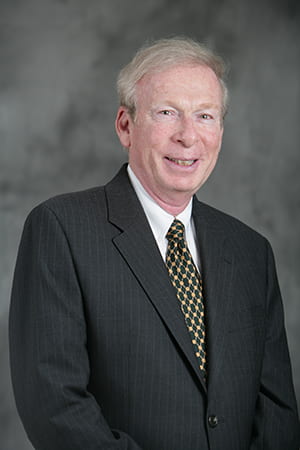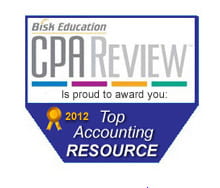18 Highlights of the 2018 Berkshire Hathaway Annual Meeting – May 5, 2018
These are the highlights of the May 5, 2018 Berkshire Hathaway annual meeting. Warren Buffett (87) and Charlie Munger (94) responded to shareholder questions during the five hour meeting. A record number of about 42,000 shareholders attended.
In opening comments, Warren Buffett mentioned that $10,000 invested in the S&P 500 in March 1942 would be worth $51,000,000 today (compounded annual rate of return = 12%). By contrast, $10,000 invested in gold in 1942 would be worth only $400,000 today (compounded annual rate of return = 5%), since gold is a non-productive asset. By following a buy and hold strategy (stocks), “brokers would starve to death”. With a long time horizon, it does not matter whether the Federal Reserve will raise interest rates three or four times this year. (Warren Buffett at age 11 bought his first stock on March 11, 1942, which was 3 shares of Cities Service Preferred at $38.25 per share. He subsequently sold these shares for $40 each after they declined to $27. )
Buffett also mentioned that in the first quarter of 2018, Berkshire’s operating earnings of $5.3 billion were its highest ever. However, as a result of a change in Generally Accepted Accounting Principles requiring the inclusion of unrealized gains/losses in its equity security investments, Berkshire reported a loss of $1.1 billion. Buffett had previously stated that the amount of investment gains/losses in any given quarter is usually meaningless and investors should focus on Berkshire’s operating earnings. (Berkshire reported that the fair value of its investment in Kraft Heinz Co. dropped by more than $5 billion to $20.3 billion in the quarter, as its shares declined by almost 20 percent.)
In response to shareholder questions:
(1) Warren Buffett defended Wells Fargo, one of Berkshire’s largest equity holdings, despite several scandals at the bank. Wells Fargo had a flawed incentive system, an issue that was compounded by ignoring it. He compared Wells Fargo with some of Berkshire’s best investments that experienced scandals in the past, including American Express Co. (1960’s) and automobile insurer Geico (1970’s). “All the big banks have had troubles of one sort or another,” he said. “And I see no reason why Wells Fargo as a company, from both an investor standpoint and a moral standpoint going forward, is in any way inferior to the other big banks with which it competes.” “I like it as an investment. I like CEO Tim Sloan as a manager. He is correcting mistakes made by other people.”The point is that finding problems and fixing them makes a company stronger. Buffett believes that’s the case with Wells Fargo.
(2) Despite its $108.6 billion in cash as of March 31, Buffett continued to argue against paying a dividend to shareholders. Buffett said even a one-time special dividend would be “very unlikely,” but he noted that if the firm decided it couldn’t use its capital effectively, it would figure out the best way to return it to shareholders. If repurchases of Berkshire stock were really attractive, they would find a way to do it in a very big way. Berkshire invested $15 billion in equities this year through April, with $13 billion being invested in Apple.
(3) Warren Buffett stated that Berkshire doesn’t initiate hostile takeovers, but he doesn’t think they’re “evil.” “We seldom take a position opposite the management, very seldom, on anything involving a proxy contest of sorts. But we don’t rule them out,” he said. “There are certainly companies that deserve challenge, and they propose things that deserve challenge occasionally.”
(4) With respect to brand loyalty, “We want products where people feel like kissing you instead of slapping you,” That philosophy drove investments in American Express and Coca-Cola in the past and is driving their purchase of Apple shares today.
(5) Buffett stated that today’s companies require much less capital intensity to produce huge levels of profit. The four largest companies by market value essentially don’t need any tangible net assets, he said. Most are highly profitable and stand to become even more so due to the lower corporate tax rate. “This has become something of an asset-light economy.”
(6) Buffett mentioned that every week, Berkshire businesses generate $400 million in cash flow.
(7) “Cryptocurrencies will come to bad endings.” Bitcoin is not a productive asset like land or shares of stock. Price gains are dependent on more people coming into the market so one holder can sell it to the next at a higher price than they bought it for. The same argument goes for stamp collections and gold. “If you had bought gold at the time of Christ and you figure the compound rate on it, it’s a couple tenths of a percent,” Buffett said. Such assets tend to attract “charlatans.”‘ Charlie Munger added: “Someone else is trading turds and you decide I can’t be left out.”
(8) Buffett said that changes in the corporate tax law were good for shareholders across the country and generally very good for Berkshire shareholders. He said that the government’s intent had to be if you were going to cut taxes, shareholders would get a particularly large portion of the gains.
(9) Berkshire sold back some of its Phillips 66 stock to the company earlier this year to keep its ownership under 10% — and missed out on a rally. Because of regulations, Berkshire likes to keep its equity stakes under 10%. (He added that he’s not planning to sell any American Express stock. Berkshire 0wns 17.6% of American Express.) Buffett praised Phillips 66 and its leadership, and Charlie Munger praised the subsidiary that Berkshire bought from Phillips 66 a few years ago.
(10) Berkshire’s Mastercard and Visa stakes were purchased by his portfolio managers, Todd Combs and Ted Weschler. Berkshire’s large American Express stake was Buffett’s purchase. With respect to Mastercard and Visa, Buffett said: “I could have bought them as well, and looking back, I should have.” He then praised American Express for doing “a fantastic job in a very competitive field. … We love the fact that we own it.”
(11) With respect to Apple, “We very much approve of them repurchasing shares,” Buffett said. Buffett mentioned that it now owns about 250 million shares of Apple, or about 5% of the company. Buffett noted, as shares come out of the market due to repurchases, Berkshire’s stake in the company will grow on its own. Buffett and Munger also expressed skepticism that Apple could find strong acquisition targets that are large to buy with its cash. “The reason companies are buying their stock is that they are smart enough to know it’s better for them than anything else,” Munger said, adding that they don’t approve of all repurchase strategies.
(12) With respect to Kraft Heinz, sales are growing for several products including ketchup. “Consumer package goods are still a terrific business in terms of return on invested assets.”
(13) Buffett said that Berkshire’s managers already run lean operations, so they don’t need aggressive cost-cutting. Berkshire buys companies that don’t need improving, while 3G buys companies that could benefit from a turnaround.
(14) Buffett explained why he does not like long term U.S. Government bonds. He says that with the Federal Reserve trying to get inflation up to 2% and rates on longer-term debt at 3%, the inflation-adjusted after tax returns are currently about 1/2% . When the Fed lowered rates to near zero during the financial crisis, it reduced the amount that savers earned. Munger said that it wasn’t fair but was probably necessary to combat the recession, but it did help lift stock prices. With respect to stock investors, Munger said, “We’re all a bunch of undeserving people and I hope we continue to be so.”
(15) With respect to tariffs, Mr. Buffett said “I don’t think either country (U.S. and China) will dig themselves,” into something that turns into a trade war. Munger then added that some of the trade conditions in the steel industry needed changing. “Even Donald Trump can be right on some of this stuff.”
(16) A shareholder asked if Buffett was semi-retired, since he shares his investment responsibilities with portfolio managers Ted Weschler and Todd Combs, and has Ajit Jain and Greg Abel promoted to new jobs overseeing Berkshire’s operating businesses. Buffett responded “I’ve been semi-retired for decades,”. He pointed out that Weschler and Combs oversee a total of about $25 billion in equity investments, while Buffett is responsible for $170 billion in equity, $20 billion in long term bonds, and $100 billion in cash. He said “Nothing’s really changed that much,” since the recent promotions. “I think, actually, semi-retired probably catches me at my most active point.” Charlie Munger then added: “Warren is very good at doing nothing.”
(17) Buffett said that Todd Combs and Ted Weschler have both “slightly” beat the S&P 500 Index since they started managing Berkshire’s money. Todd Combs and Ted Weschler, have almost identical performance since they joined, Buffett said. Combs was hired by Berkshire in late 2010 and Weschler joined about a year later. While Buffett said their performance roughly amounts to matching the S&P 500, they’ve received some incentive pay that they only get if they outperform that benchmark. “It’s been better than I’ve done, so naturally I can’t criticize,” he said.
(18) Buffett and Munger acknowledged that they made a mistake by not investing early on in Amazon and Google. But they are very happy with their investment in Apple.




